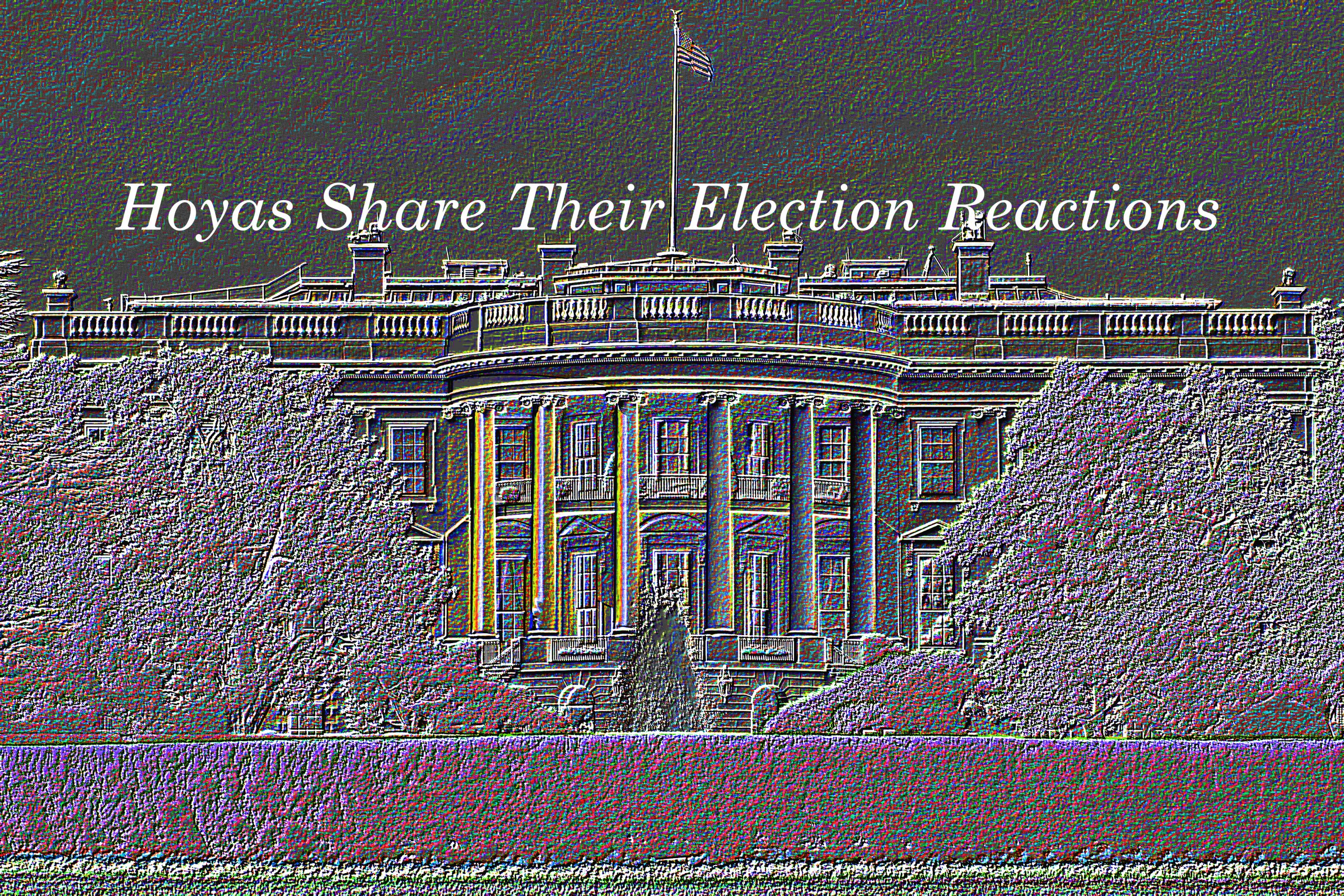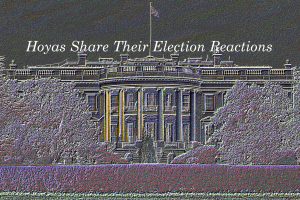On the night of Saturday, Nov. 19, the line to enter DAR Constitution Hall stretched around the corner. It was comprised primarily of sophisticated middle-aged D.C. residents donning fur trimmed trench coats and leather jackets, just in time for the first frigid night of the season. Sprinkled among them were college students and elderly couples. All, including myself, were patiently waiting, excited to sit down and watch the famous Louis C.K. work his magic to create laughs, and to lighten moods in this stressful, tense time. As a complete outsider to the standup comedy scene, skeptical that a single person on a stage can make me laugh, I was less excited and more hopeful that my $25 and the possibility of hypothermia were worth it.
After two rising comedians opened the show, the star of the night finally came out to resounding applause. The crowd settled down and the first thing to come out of the alleged comedic genius’s mouth was, “Abortion is like taking a shit.” Then, after a pause, “or like killing a baby.” The absurdity of the statement made me slightly uncomfortable, but the real surprise was the reaction of the audience surrounding me. Seasoned businessmen in $1000 suits, sour wrinkled old couples, and young women were all concertedly roaring with laughter at this combination of elementary school poop humor with an uber sensitive political issue.
Despite my initial surprise, I quickly abandoned my uneasiness and began to thoroughly enjoy the quick pace, the silliness, and the overall cynical tone of the show. I found myself cackling along with the rest of the crowd and clapping wholeheartedly at the end. I walked out satisfied, deeming the night a success, thankful to my friends for introducing me to this form of entertainment.
The following Monday, I was unusually eager to respond to the disinterested formality of “How was your weekend?” and enlighten my tired, gloomy peers with a detailed relation of Saturday night’s jokes. However, as I replayed the bits in my head, trying to decide which one would elicit the most enthusiastic reaction, I found myself at a loss for words. Every joke, when imagined outside the context of Louis C.K.’s show, seemed too awkward, childish, or distasteful. Abortion, starving children, racial inequality, sexism—all of which were somehow hilarious the other night, now returned to their standard place in the box of categorically taboo conversation topics.
Needless to say, no dialogue ensued, but the incident made me question all my laughs the other night. Why did a light hearted comedy show focus on such sensitive issues, and why was it funny?
The answer lies closer to me than I thought. All I had to do was open Twitter or Facebook and scroll through the abundant memes that appeared immediately after the election of Donald Trump. Humor seemed so out of place—America had just elected an inexperienced, bigoted, racist, and sexist man to be president. Yet the proliferation of memes was as rapid as ever, because on a day that was so overwhelmingly tragic and full of panic, they served as a momentary relief, as a quick escape from the feelings of powerlessness and uncertainty the whole country was experiencing.
The idea of comedy as an escape made sense, but it left me dissatisfied and even disappointed. In a country where comedy shows dominate television and standup comedians enjoy vast popularity, could our society be constantly running away from our most pressing problems? Is our laughter a sign of complacency, a failure to exercise our right to make a difference as citizens of a democratic nation?
To answer this question, and hopefully prove myself wrong, I looked to none other than the birthplace of democracy—Ancient Greece—where I discovered that stand up comedy was a practice born long before America was even a country. Philosophers whose names can be heard in any PHIL 101 class, whose ideas started entire movements, whose teachings left an everlasting legacy, favored standup comedy as a technique to encourage free speech. A fundamental component of any democracy, in Ancient Athens it had its own name—Parrhesia. Philosophers used Parrhesia to openly make fun of politicians, public figures, religion, and laws, thereby forcing people to question the society they lived in.
Today, I think the purpose of standup comedy remains the same. As a practice rooted in philosophy, its aim is similar to philosophy’s—to question and thereby elicit contemplation. When Louis C.K. brings up racial inequality in America through a humorous anecdote, he isn’t minimizing the issue or writing it off by laughing about it. Rather, he’s forcing his audience to face this uncomfortable problem that many Americans chose to ignore. Combining absurdity with serious topics makes people voluntarily listen to a discussion of realities they would otherwise prefer not to think about.
Right now, comedy might be more relevant than ever. Our country is at the peak of ideological, cultural and political division, and the only remedy I can think of is conversation and understanding. Both are easier said than done, because no group wants to change their stance. But maybe through the use of humor, we can encourage each other to think about things from a different perspective, and thereby create the empathy and understanding that we are so desperately lacking. So next time you talk to your Trump-supporting friend or uncle, consider throwing in a poop joke with undertones of intersectional feminism.
Elizabeth is a freshman in the College.



